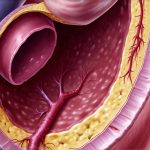Gastrointestinal cancers encompass a broad spectrum of malignancies affecting the digestive system, from the esophagus to the rectum. These cancers are often shrouded in misconceptions that can hinder early detection, appropriate screening, and informed decision-making regarding treatment. Many individuals harbor inaccurate beliefs about risk factors, symptoms, and even the feasibility of successful intervention, leading to delayed diagnoses and potentially impacting outcomes. Understanding these common fallacies is crucial for empowering patients and promoting proactive healthcare strategies. A well-informed public can actively participate in preventative measures and seek timely medical attention when necessary, significantly improving their chances of navigating a cancer diagnosis effectively.
The digestive system’s complexity means that GI cancers aren’t a single disease; they are diverse, each with unique characteristics and behaviors. This diversity contributes to the confusion surrounding them. Misconceptions often stem from generalizations or outdated information, amplified by popular media or anecdotal accounts. Furthermore, the stigma associated with discussing bodily functions can create barriers to open communication about symptoms, leading to delayed recognition of warning signs. It’s vital to dispel these myths and replace them with accurate knowledge based on current medical understanding, emphasizing that early detection remains a cornerstone of successful treatment across all GI cancers.
Understanding Risk Factors & Prevention
Many people believe gastrointestinal cancers are primarily caused by genetic predisposition alone, minimizing the role of lifestyle factors. While family history does play a part – and individuals with a strong familial history should certainly be more vigilant about screening – it’s rarely the whole story. The majority of GI cancers are linked to modifiable risk factors, meaning they can be influenced through conscious choices. These include dietary habits, smoking, alcohol consumption, obesity, and chronic inflammation. For instance, diets high in processed meats and low in fiber have been consistently associated with an increased risk of colorectal cancer. Similarly, Helicobacter pylori infection is a significant risk factor for stomach cancer.
Preventative measures aren’t about eliminating all risk – that’s often impossible – but rather mitigating it. This can include adopting a healthy diet rich in fruits, vegetables, and whole grains; maintaining a healthy weight; quitting smoking; limiting alcohol intake; and undergoing regular screenings as recommended by healthcare professionals. Screening isn’t simply for those who have symptoms; it’s designed to detect cancer at its earliest stages, when treatment is often most effective. The availability of screening tests varies depending on the type of GI cancer – colonoscopies for colorectal cancer, upper endoscopy for esophageal and stomach cancers, etc. – but understanding the options available is a crucial step in proactive healthcare management.
Another common misconception is that these cancers are “old people’s diseases.” While incidence rates do increase with age, younger individuals can also be diagnosed. There’s been an alarming rise in colorectal cancer diagnoses among adults under 50 in recent years, prompting changes to screening guidelines in some regions. This highlights the importance of paying attention to any persistent digestive symptoms, regardless of age.
Debunking Symptoms & Early Detection
A prevalent misconception is that GI cancers always present with obvious, dramatic symptoms. In reality, many GI cancers initially cause vague or non-specific symptoms that are easily dismissed as indigestion, heartburn, or simply “a bad stomach.” This can lead to significant delays in diagnosis. For example, early colorectal cancer often presents without any noticeable symptoms at all, which is why screening is so vital. When symptoms do appear, they can vary significantly depending on the location and stage of the cancer.
Here’s a breakdown of some common (but potentially overlooked) warning signs:
– Persistent changes in bowel habits (diarrhea, constipation, or narrowing of stool).
– Rectal bleeding or blood in the stool.
– Unexplained weight loss.
– Fatigue.
– Abdominal discomfort or pain.
– Difficulty swallowing (dysphagia).
– Indigestion that doesn’t improve with over-the-counter remedies.
It’s crucial to remember that experiencing these symptoms does not automatically mean you have cancer. Many other conditions can cause similar symptoms. However, persistent or worsening symptoms should always be evaluated by a healthcare professional. Early detection is paramount; the earlier a GI cancer is diagnosed, the greater the chances of successful treatment and improved prognosis. A simple colonoscopy or endoscopy could save your life.
Treatment Options & Quality of Life
There’s a widespread belief that a diagnosis of gastrointestinal cancer automatically equates to a bleak outlook and a severely diminished quality of life. This is simply not true. While GI cancers can be aggressive, significant advances in treatment have dramatically improved outcomes for many patients. Treatment options are highly individualized and depend on the type and stage of cancer, as well as the patient’s overall health. These options include surgery, chemotherapy, radiation therapy, targeted therapy, immunotherapy, and combinations thereof.
The misconception often arises from focusing solely on the potential side effects of treatment. While treatments can have side effects, modern medicine has made significant strides in managing these effectively. Supportive care – including pain management, nutritional support, and psychological counseling – is an integral part of cancer treatment, aimed at minimizing discomfort and maximizing quality of life. The goal isn’t just to eradicate the cancer; it’s to help patients live full and meaningful lives during and after treatment.
Furthermore, many people underestimate the importance of rehabilitation and long-term follow-up care. Following successful treatment, regular check-ups are essential for monitoring for recurrence and addressing any late effects of treatment. Active participation in a comprehensive cancer survivorship program can empower patients to regain control of their health and well-being, ensuring they receive ongoing support and guidance as they navigate life after cancer.


















